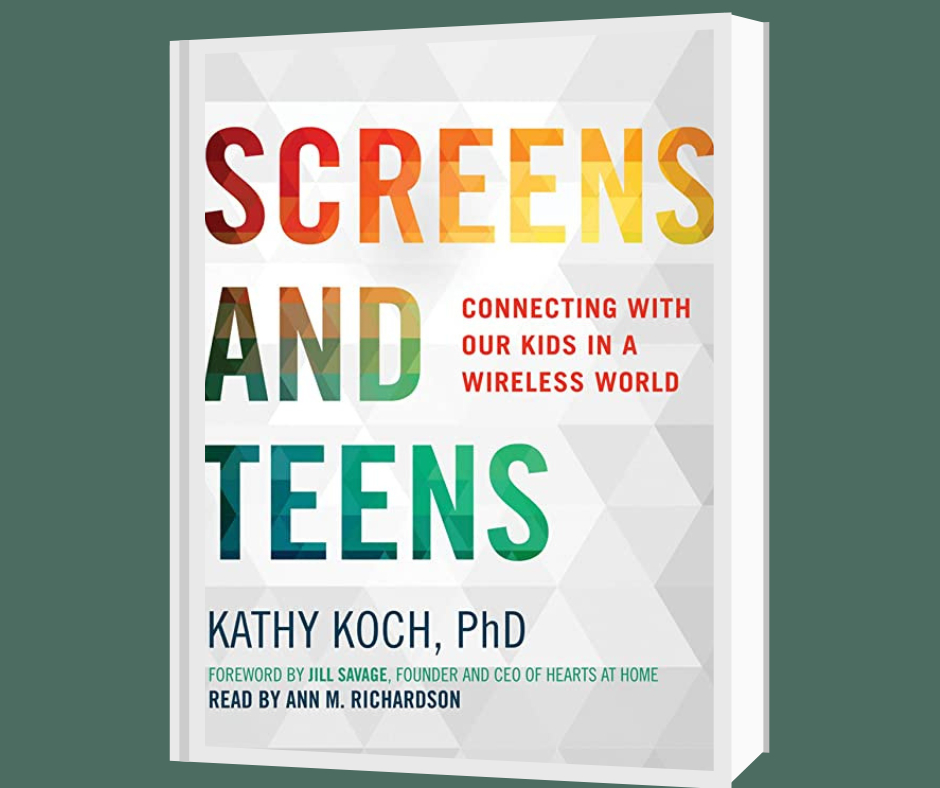Book Reviews
Screens and Teens: Connecting with Our Kids in a Wireless World, by Kathy Koch | Review by Rosa Byler

Screens and Teens’ author Kathy Koch (pronounced “cook”) joins a growing body of both Christian and secular professionals seeking to evaluate the effects of technology overuse. Koch briefly describes possible consequences, the main ones being decreased memory, distraction, and diminished ability to concentrate. Use of technology can train or retrain neurons, the brain’s “conduits of information”: patterns form in the brain through repetitive behaviors, resulting in the development of routines which become habits that lead to addictions.
A “culture of restart” gives the impression that there are no truly serious consequences. Online “friendships” demonstrate an unrealistic management of relationships without much emotional involvement. Information too easily accessed provides little opportunity to develop skills of persevering in the face of difficulty. Last but not least (and so obvious as to be obscure), time spent on a technological device means less time spent connecting person-to-person.
Far from being just another scary analysis of technology’s potential for harm, though, the book offers hope and practical ways to maximize relational connections between young people and their parents. Koch recognizes that gloom and doom seldom frighten anyone away from a beloved idol; it takes a more worthwhile love to allure him, and parents are in an optimal position to “win [children] back from the power of screens.” (59)
Koch identifies five God-given core needs: security, identity, belonging, purpose, and competence. Security can be found in trustworthy people, but ultimately only in God; identity influences behavior, thus accuracy of perspective is crucial. Belonging is healthiest when it means belonging to God and to people of solid character; purpose is defined by the question “Why am I alive?” Competence is developed best in security, related to identity, frequently discovered in belonging, and is necessary for purpose. Technology does “offer some good tools for meeting those needs,” but their use without discernment is counterproductive. (27-28)
The current young generation faces such problems as massive information overload, screen-related fatigue, and tech addiction. Technological toys and tools have featured heavily in their “upbringing”; availability of conveniences has contributed to a lack of personal challenges. This suggests that some of their false perceptions about life will look different from the ones their parents believed as teenagers. The largest portion of the book addresses five “lies” held by the average young person:
1) I am the center of my own universe; 2) I deserve to be happy all the time; 3) I must have choices; 4) I am my own authority; and 5) Information is all I need, so I don’t need teachers. While the basic nature of these deceptions has not changed since the Garden of Eden, it is easy to see how individual use of technology feeds and grows them in new ways. Koch has no shortage of practical tips for combating falsehoods on a large or small scale. A few of the more helpful tidbits I gathered: Don’t assume young people know why you hold the values you do—talk about them frequently. Discuss the value of solitude, quiet, and mental inactivity. Teach and demonstrate basic social skills and provide opportunities to practice them. Don’t assume all questions are judgmental. Examine your own approach to security and identity—do you model dependence on God’s provision?
Koch has had considerable experience working with children, teenagers, and their parents, and not-so-subtly woven throughout the book is the suggestion that Teens are not the only ones who have trouble with Screens. Prepare to have your virtual toes trampled—changing a few of your own habits may be well worth the effort.